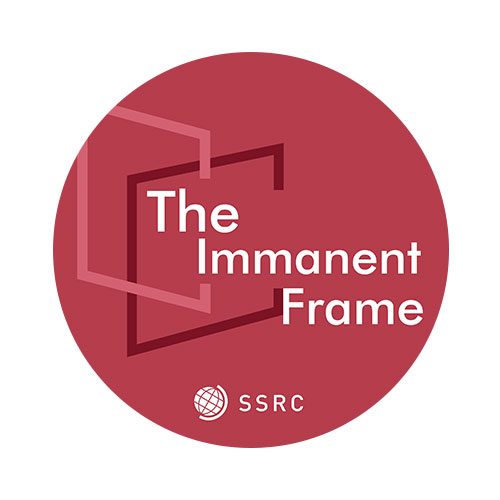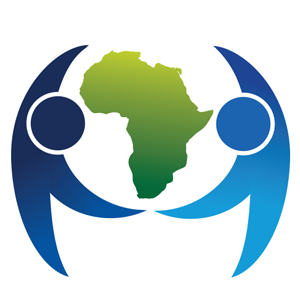Public access cable channels have rarely been considered essential—that is until the Covid-19 pandemic disrupted every facet of public life. Often lampooned or ignored, these channels suddenly offered informational lifelines to more than 3,000 US communities desperate for local news, high school graduations, religious services, entertainment, and education. Their crisis performance underscores the potential for hyperlocal media, as well as the need for regulatory structures that bolster open society.
Starting with SSRC president Alondra Nelson’s reflections on “Society after Pandemic,” this series of essays explores the human, social, political, and ethical dimensions of Covid-19. These pieces call attention to how social research can shed light on the short- and long-term effects of the pandemic and what can be done to improve responses, both now and in the future.
The publication of this series would not be possible if not for the help of the following SSRC staff:
Juni Ahari, communications and editorial assistant.
Cole Edick, program associate, Anxieties of Democracy and Media & Democracy programs.
Carrie Hamilton, program assistant, Social Data Initiative and Media & Democracy program.
Saarah Jappie, program officer, Transregional Collaboratory on the Indian Ocean.
Michelle Lee, program assistant, International Dissertation Research Fellowship.
Line Sidonie Talla Mafotsing, communications and editorial assistant, African Peacebuilding Network and Next Generation Social Sciences in Africa.
Daniella Sarnoff, program director, International Dissertation Research Fellowship.
Catherine Weddig, program assistant, Social Data Initiative and Media & Democracy program.
Themes
Essays


African Migrants’ Remittances: An Avenue of Giving and Receiving Severely Disrupted during the Covid-19 Lockdown
by Dostin Mulopo LakikaRemittance is one of the most perceptible forms of support that African migrants have always provided for their families back home. Studies show that the money such migrants send home is one of the largest sources of financial inflows to developing countries. Many migrant workers remit money back home despite their own precarious socioeconomic conditions in their host countries. They do so despite the fact that such remittances affect their quality of life and hamper the realization of their personal projects.

In China, Pandemic Diaries Unite, and Divide, a Nation
by Guobin YangIn the digital age, diary writing, often imagined as an individual and private phenomenon, can be both social and public. As Guobin Yang writes, the social lives of digital diaries written from the epicenter of a global pandemic, such as the “lockdown diaries” of Wuhan, China, took on unexpected cultural and political importance, at once unifying and polarizing a nation as the world looked on.

“The Big Clean Up”: The 2020 Pandemic as a Representational Crisis
by Julia SonnevendWe learn of many crises only from the media—from far-way earthquakes to spectacular child abductions to life-changing national election results. But the Covid-19 crisis is so close — in our bodies, homes, communities, and schools—and yet we cannot see it. The pandemic poses profound representational challenges, writes Julia Sonnevend, confounding our collective ability to relate to it, to see the suffering, and to act.

Who Produces Science During Crisis?
by Courtney D. CogburnWith research on the social impacts of the Covid-19 pandemic now underway, Courtney Cogburn argues for examining who receives funding and conducts research, in particular with regard to the investigation of the racial dimensions of the crisis. Cogburn suggests that now is especially the moment for highlighting and supporting the work of scholars who have deep knowledge of and expertise on the racial inequalities embedded in the United States, as well as the inequities present in academic research.

Mysterious Deaths in Bonny Island, Nigeria: Covid-19 Pandemic or Petro-Epidemic?
by Elias CoursonAn Italian citizen who returned from Milan to Lagos, on February 25, 2020, was confirmed as Nigeria’s index Covid-19 case by the Federal Ministry of Health on February 27, 2020. This provided ample time for the Nigerian government to take necessary preventive measures, including the closure of borders and requiring individuals coming into the country to quarantine themselves for two weeks. It took President Muhammadu Buhari one extra month to respond to the situation in two states (Lagos and Ogun) and the Federal Capital Territory (FCT), Abuja, which were experiencing high rates of Covid-19 prevalence.

Not All Disasters Are Disasters: Pandemic Categorization and Its Consequences
by Samantha Montano and Amanda SavittIn their essay for “Covid-19 and the Social Sciences,” Samantha Montano and Amanda Savitt break down the importance of event categorization for applied disaster response, and the need for researchers and science communicators to use these concepts consistently. Hearkening back to E. L. Quarantelli’s seminal work on the subject, Montano and Savitt revisit previous events that have helped define conceptual scales for catastrophic events and ask whether and how we should describe the Covid-19 pandemic as such. Considering the unique harms produced in the pandemic context (including widespread economic impacts, and the limits on resource-sharing that can respond in geographically limited disasters), the authors show how the framing of our research has long-reaching potential effects on policy and practice.

Inequality in the Digital Pandemic
by Mona SloaneAs the Covid-19 pandemic has forced millions to remain in their homes and restricted the capacity of public spaces, people have turned to online spaces to continue all forms of social interactions. However, despite being heralded as a means to overcome social inequalities, the new “digital public spaces” have continued these inequalities. In this essay, Mona Sloane draws attention to how prepandemic inequalities, created by social, political, and economic dynamics, prevail in social isolation. These are exemplified, for example, through who has efficient internet access and who owns the websites and apps facilitating online social interaction. Sloane asks us to consider not just how prepandemic conditions shape digital spaces but also how they influence our understanding of these spaces and the meanings we ascribe to them.

Overlooking Official Responses: Thai Buddhist Institutions and Covid-19
by Thomas BorchertIn the last several months, stories have emerged about the ways that Covid-19 has affected Buddhists in Asia. While the long-term consequences on religious communities remain unclear, scholars are reporting on the effects of the pandemic on Buddhist practices across Asia.

Covid-19, Human Security Crisis, and the Responsibility to Protect
by Muema WambuaIn 2001, the International Commission on Intervention and State Sovereignty (ICISS) published the Responsibility to Protect (R2P) framework report. The R2P framework, which was adopted by the United Nations (UN) in 2005 in the World Summit Outcome document, stipulates that the international community has an inherent obligation to intervene within other sovereign states with a view to countering the commission of mass atrocity crimes “for the purpose of protecting people at risk.”






